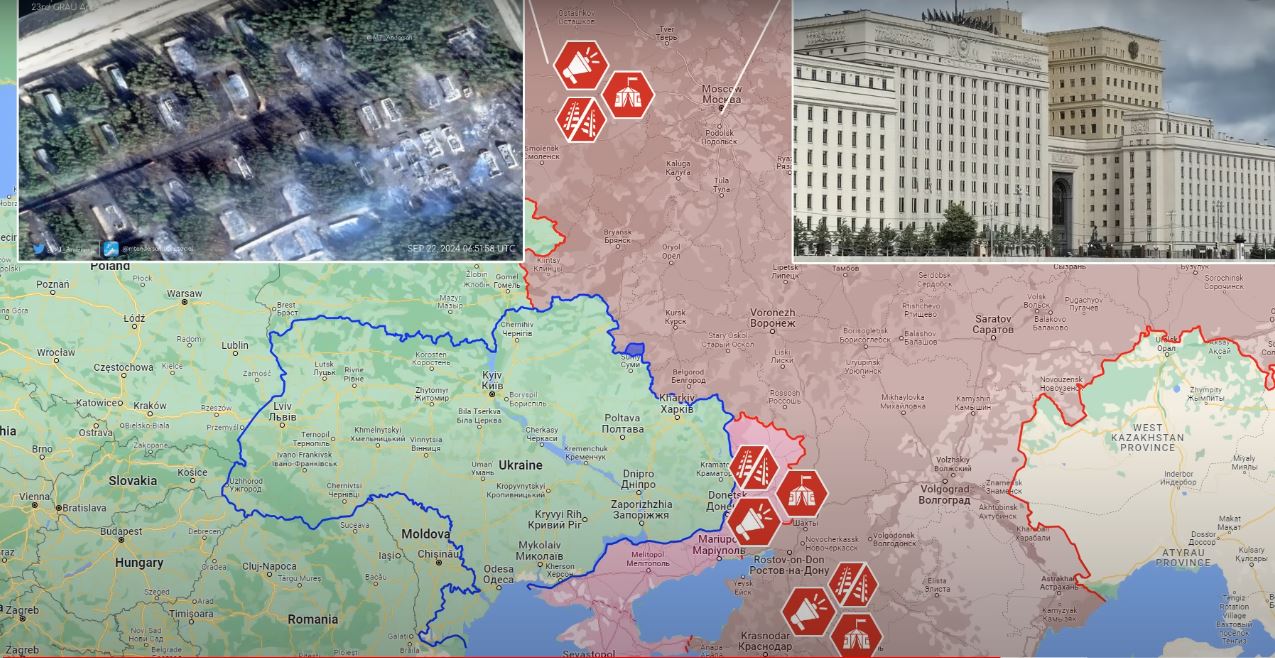24 September 2024. Today there are a lot of updates from the Russian Federation.
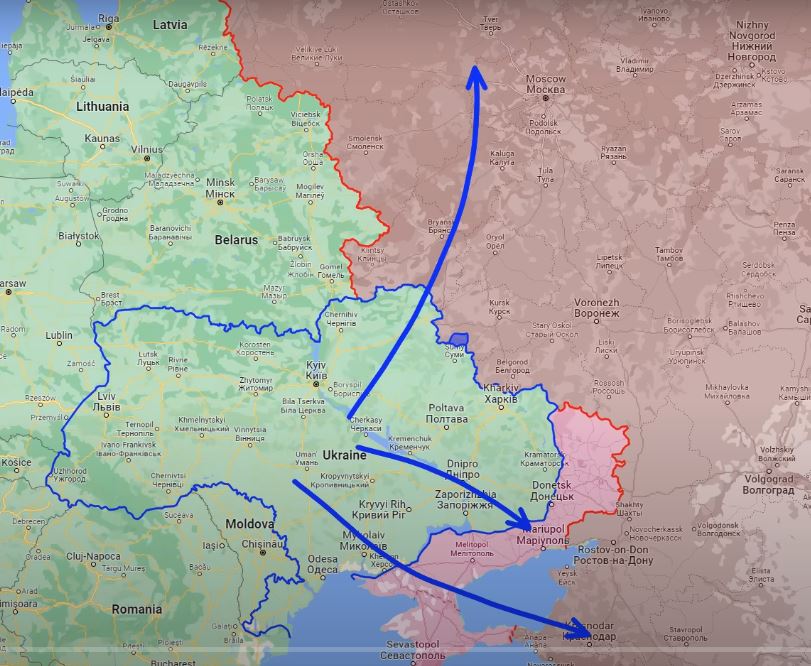
Here, in the last couple of days, Ukrainian forces launched a devastating series of strikes, destroying not only recently arrived military supplies from North Korea and Iran but also Russia’s strategic stockpiles of weaponry.
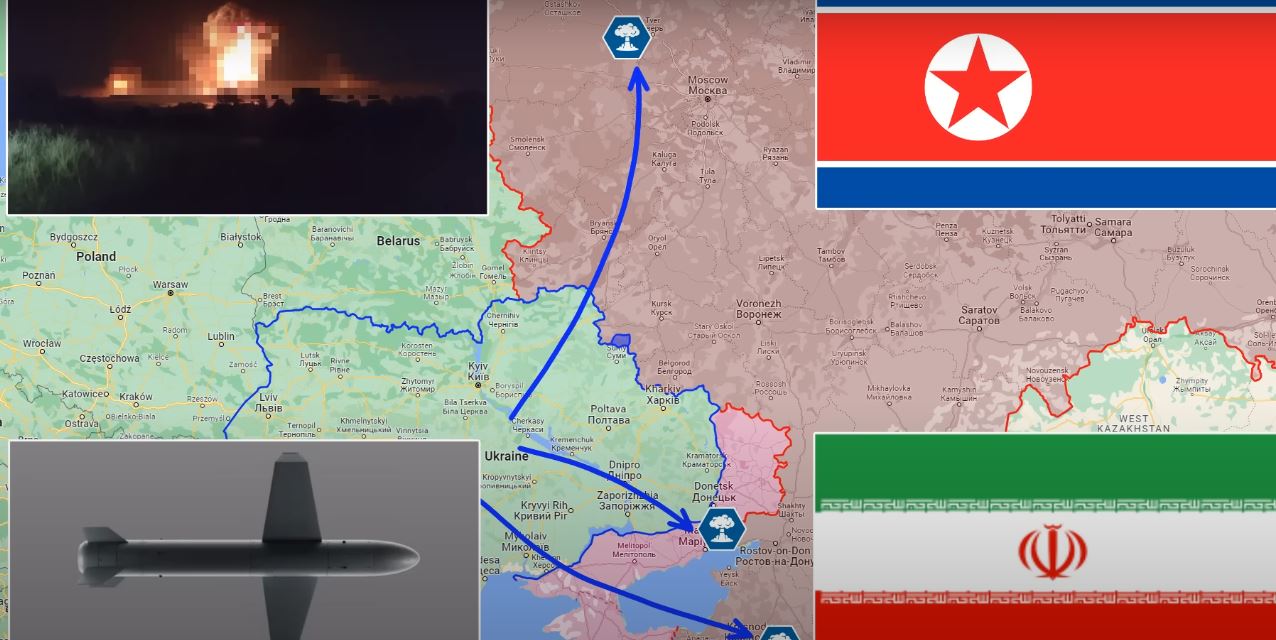
Despite still lacking permission from Western allies to use long-range missiles deep within Russian territory, Ukraine has effectively used their newest game-changer drones Palianytsia to deliver a significant blow to Russian offensive capabilities.
Destruction of depots in Russia’s Tver Oblast
First of all, Ukrainian forces wiped out two Russian strategic missile and ammunition storage depots in the Tver region. The first target was a Russian storage facility near Toropets.
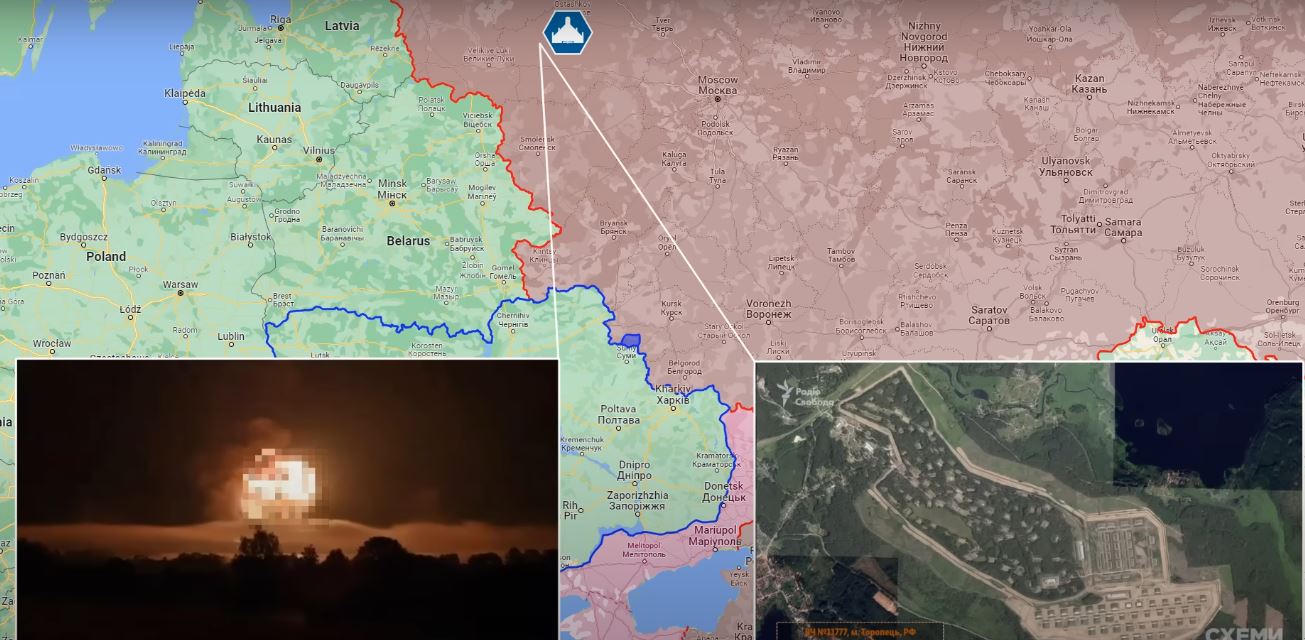
To breach Russian air defenses and ensure the strike’s success, Ukrainian forces deployed over 100 drones. A source within Ukrainian special services revealed that the operation initially hit the Russian Ministry of Defense’s 107th Arsenal, which housed Iskander and Tochka-U ballistic missiles, anti-aircraft missiles, artillery ammunition, and recently delivered North Korean KN-23 ballistic missiles. Geolocated footage from the strike showed massive secondary explosions, likely from missile stockpiles and artillery munitions, following the initial drone impact.
Ukraine’s Tver ammo depot attack featuring jet drones lowers Russian threat to Baltics
Later satellite imagery confirmed extensive damage to the facility’s structures. Although Russian authorities tried to downplay the attack, claiming there was no direct hit and that debris from a downed Ukrainian drone caused the detonations, they were forced to temporarily evacuate the surrounding area. Russian military bloggers heavily criticized local officials for the poor construction of the base, highlighting corruption trials involving high-ranking officers, and speculated that improper handling of missiles and ammunition may have contributed to the scale of the explosions.
The second strike near Oktyabrskii
But this was just the beginning. The second strike in this region occurred at the 23rd Arsenal near Oktyabrskii, just 20 kilometers south of Toropets and the available satellite images show that a substantial portion of the arsenal was destroyed due to the Ukrainian drone attack. According to military analysts, these two operations alone reportedly destroyed enough munitions to affect the Russian offensive in Ukraine in the coming months.
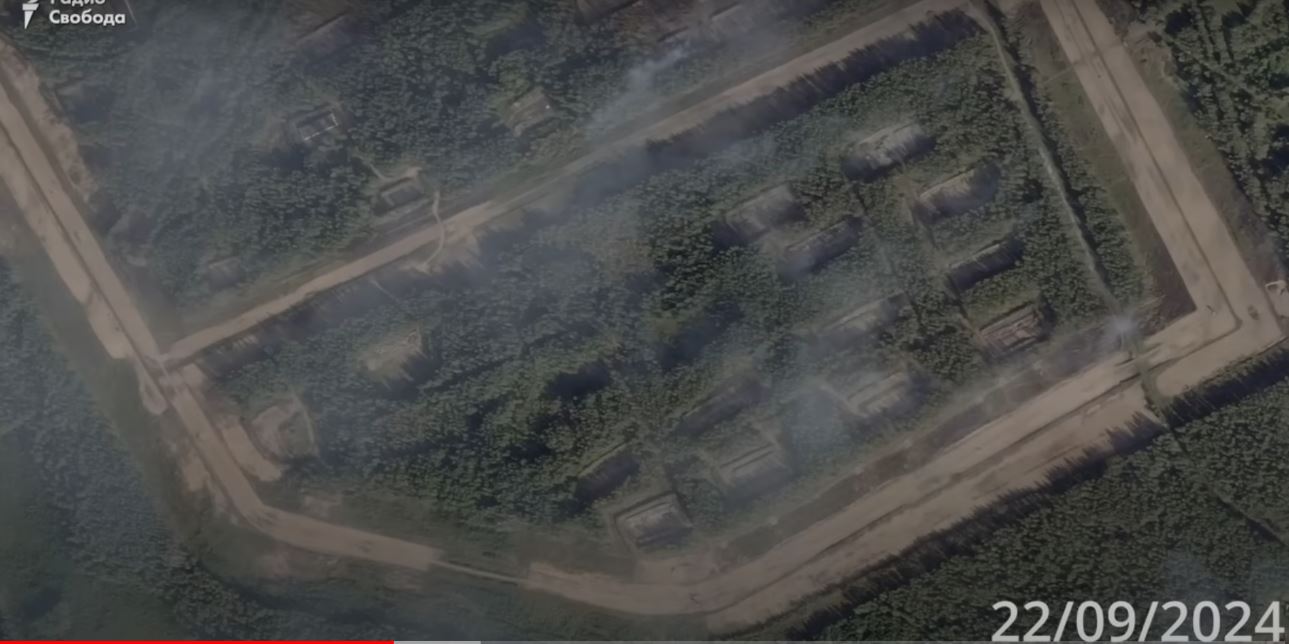
Estonian Defense Forces Intelligence chief Colonel Ants Kiviselg stated that the attack caused over 30,000 tons of munitions to explode, noting that the size of the explosion equates to more than 750,000 artillery shells. His calculations suggest the Ukrainian strike destroyed equivalent to almost three months of Russia’s ammunition supply.
Strike on Tikhoretsk Arsenal
The third target became the Russian Tikhoretsk Arsenal, located in the Krasnodar region. In order to ensure that the drones could reach the target, Ukrainians first destroyed a Russian Podlet K1 mobile long-range radar system as it was protecting the Russian strategic ammunition depot.
Massive drone assault targets Russian ammo depot and arsenal across multiple regions
This system can follow up to 200 aerial targets simultaneously at a range of up to 300 kilometers and is used to detect air targets at low altitudes for Russian air systems. Given that Ukrainians use swarms of drones flying exactly at such altitudes to attack targets deep into Russian territory, this attack was a preparation for what was about to follow.
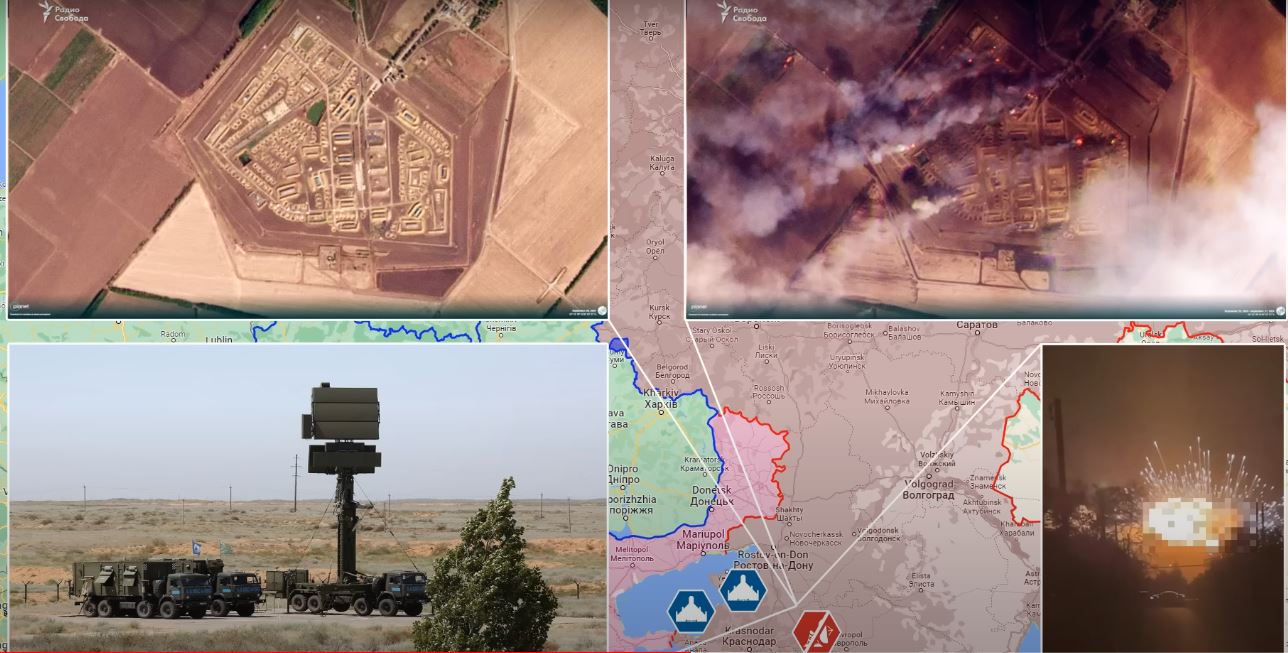
Once the radar system was neutralized, Ukraine launched a massive follow-up drone assault on the large missile and ammunition storage facility. The Ukrainian General Staff reported that drone operators successfully struck the Tikhoretsk Arsenal, with geolocated footage capturing a series of explosions and secondary detonations, as fires continued to burn for the next 24 hours.
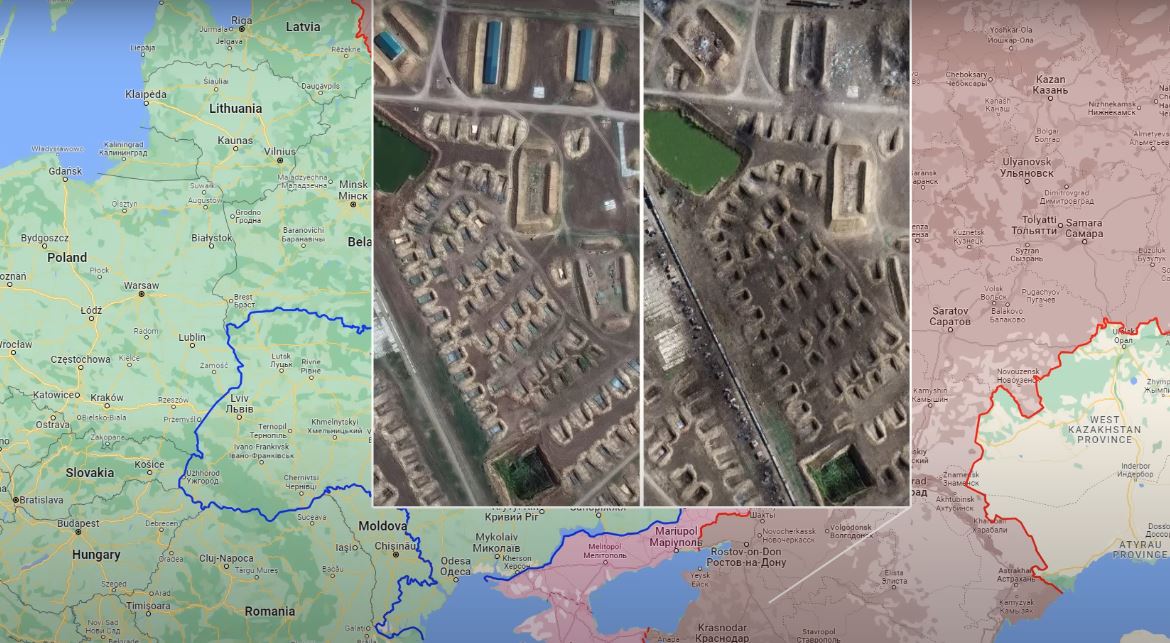
Ukrainian officials confirmed the destruction of several thousand tons of munitions, including stockpiles recently supplied by North Korea. The full uncensored footage of all Ukrainian drone strikes against the biggest Russian strategic depots can be found on Reporting From Ukraine’s Telegram channel.
Smaller depots around Mariupol
Ukrainian armed forces also recently targeted several smaller ammunition depots around occupied Mariupol. Local citizens released footage of the explosions and what was supposed to be the work of Russian air defense units. Hours later satellite images confirmed the damage to various facilities and showed the scale of the fire after these successful attacks.
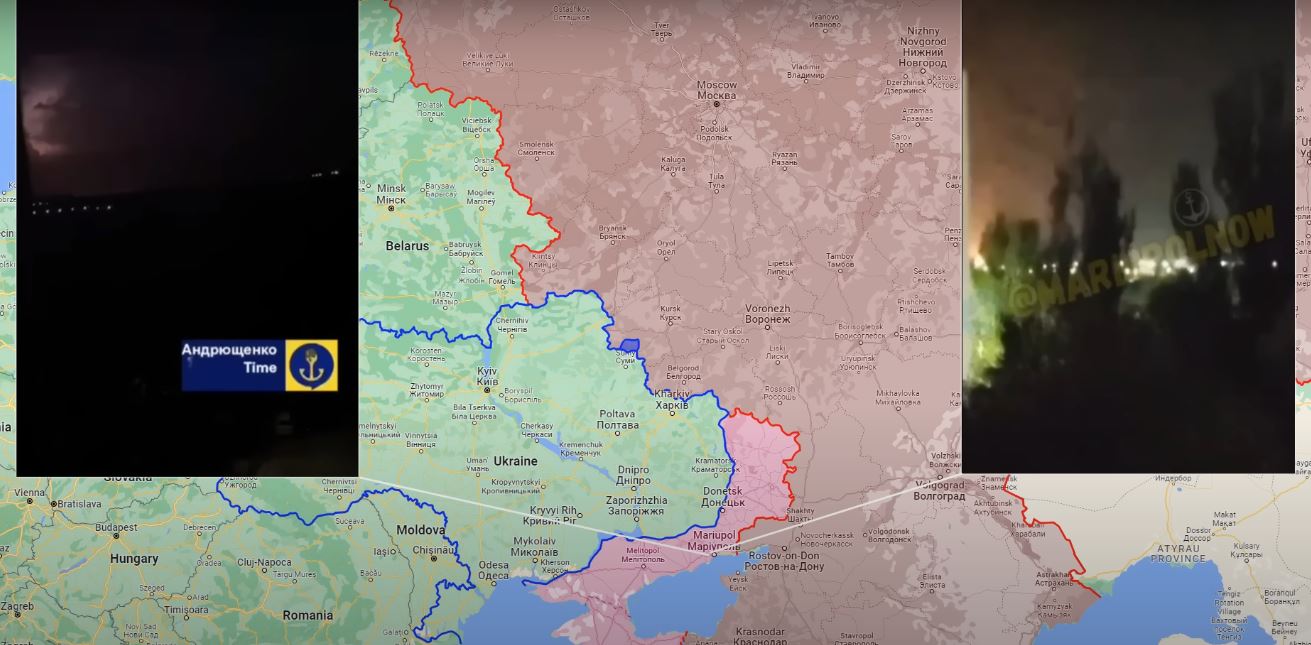
Russian response and logistical pressure
In a bizarre repeat of previous denials, the Russian Ministry of Defense again claimed that no direct hits occurred, attributing all damage to fallen Ukrainian drone debris. However, widely available satellite imagery, combined with the declaration of states of emergency, altered railway schedules, rerouted trains, and the mass evacuation of thousands of civilians from the affected areas, makes these claims appear hollow.
Impact on Russian logistics and future strikes
This is especially evident considering that these facilities had reportedly undergone recent modernizations after years of improperly storing munitions, further undermining the credibility of Russia’s response. Overall, Ukraine’s ongoing strikes on Russian logistics facilities are exerting significant pressure on the Russian military. Extending far beyond the immediate loss of ammunition stockpiles, these precision attacks are diminishing Russia’s ability to carry out long-range missile strikes on Ukraine, much like the impact of the HIMARS strikes in the summer of 2022.
The Institute for the Study of War suggests that these Ukrainian operations will likely force Russia to reorganize and disperse its logistics networks to minimize further damage. Despite the protection offered by restrictions on Ukraine’s use of Western-supplied weapons, Russian vulnerabilities remain, and not all logistic sites are beyond Ukraine’s reach. As restrictions are expected to ease and Ukraine’s long-range strike capabilities advance, the country is increasingly positioned to exploit these weaknesses.
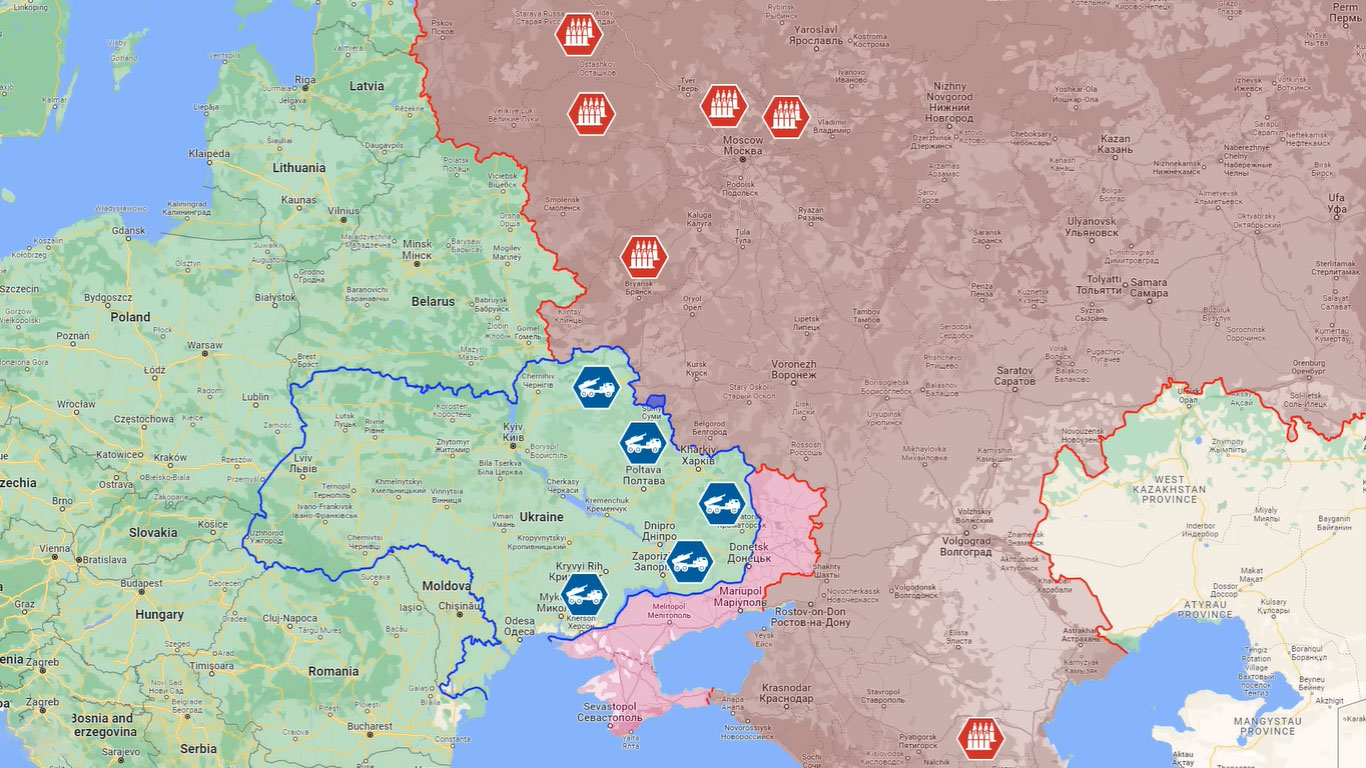
Within the 750 km range of the Palianytsia drone, for instance, six key Russian arsenals, including those in Toropets, store thousands of tons of ammunition, making them prime targets for future Ukrainian strikes.
In our regular frontline report, we pair up with the military blogger Reporting from Ukraine to keep you informed about what is happening on the battlefield in the Russo-Ukrainian war.




